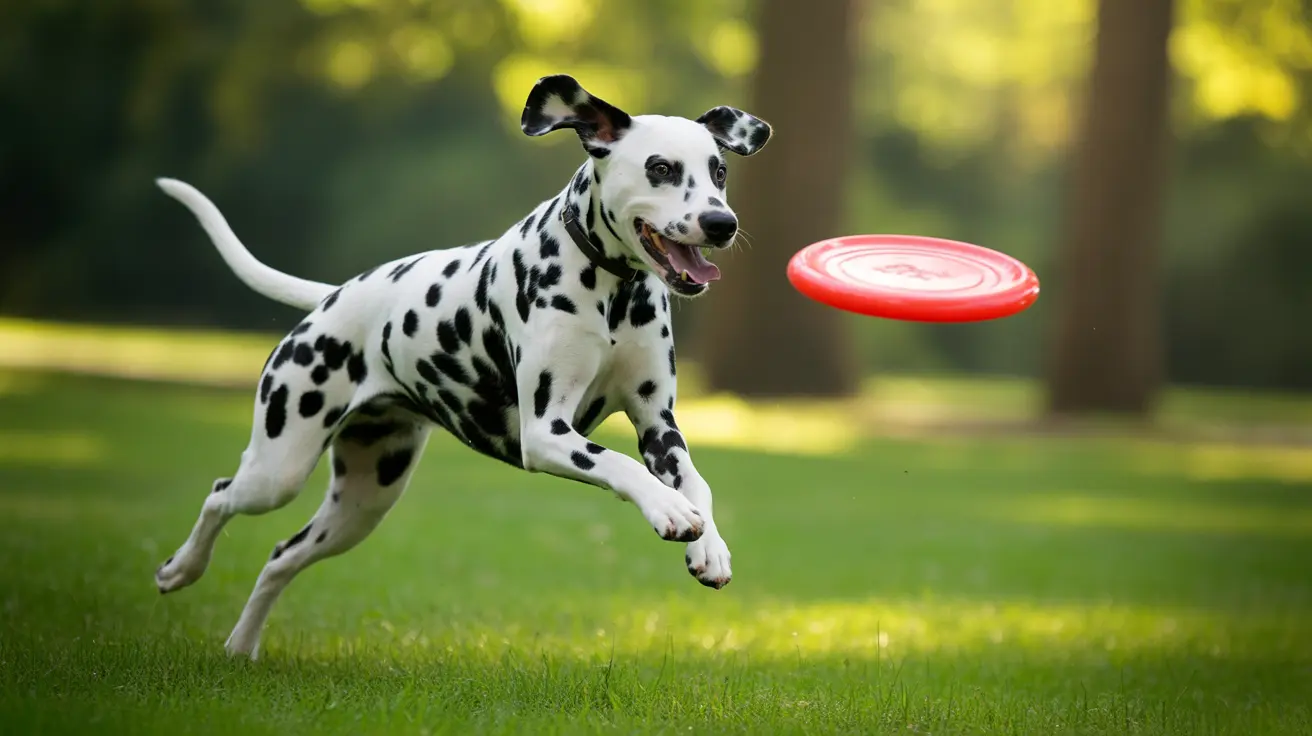When considering adding a Dalmatian to your family, it's essential to understand both the rewards and challenges of this distinctive breed. Known for their striking spotted coats and athletic builds, Dalmatians have captured hearts for generations. But are Dalmatians good dogs for every household? Let's explore what makes these spotted companions unique and help you decide if they're the right fit for your family.
Understanding the Dalmatian Temperament
Dalmatians are intelligent, energetic, and deeply loyal dogs. Their alert nature and protective instincts made them excellent carriage dogs historically, and these traits continue to influence their personality today. While they can form strong bonds with their families, they often show reserve toward strangers, making them effective watchdogs.
These dogs possess a sensitive nature and require consistent, positive training methods. Their intelligence can be both a blessing and a challenge – while they can learn quickly, they may also exhibit stubborn streaks that test their owner's patience.
Exercise Requirements and Activity Needs
One of the most crucial aspects of Dalmatian ownership is meeting their substantial exercise needs. These dogs require at least two hours of vigorous physical activity daily. Without adequate exercise, they may develop destructive behaviors or become anxious and restless.
Ideal activities for Dalmatians include:
- Running or jogging with their owner
- Playing fetch in a fenced yard
- Participating in dog sports like agility
- Swimming
- Long walks or hikes
Living with a Dalmatian: Daily Care and Maintenance
Despite their elegant appearance, Dalmatians are relatively low-maintenance in terms of grooming. However, they are notorious shedders, releasing white fur year-round that can be visible on any surface. Regular brushing is essential to manage shedding and maintain coat health.
These dogs also require consistent mental stimulation to prevent boredom. Puzzle toys, training sessions, and interactive play can help keep their minds engaged and prevent destructive behaviors.
Health Considerations for Dalmatian Owners
Potential Dalmatian owners should be aware of several breed-specific health concerns. Deafness affects approximately 30% of Dalmatians, making early hearing tests crucial. They're also prone to urinary issues, particularly bladder stones, which may require special dietary considerations.
Dalmatians and Family Life
Dalmatians can thrive in active families with older children who understand how to interact respectfully with dogs. However, their high energy levels and size make them less suitable for families with toddlers or very young children, as they may accidentally knock them over during play.
These dogs do best in households where someone is home regularly, as they can develop separation anxiety when left alone for extended periods.
Frequently Asked Questions
Are Dalmatians good family dogs, especially for families with young children?
Dalmatians can be good family dogs for active households with older children. However, they may not be ideal for families with very young children due to their high energy levels and potential to knock over small kids during play. Proper training and supervision are essential.
How do I manage the high energy levels of a Dalmatian to prevent behavioral problems?
Provide at least two hours of daily exercise through activities like running, hiking, or playing fetch. Combine physical exercise with mental stimulation through training sessions, puzzle toys, and interactive play. Establish a consistent routine to help manage their energy effectively.
Why do Dalmatians shed a lot, and how can I control their shedding effectively?
Dalmatians have a short but dense coat that sheds continuously. Regular brushing (at least 2-3 times per week), a healthy diet, and proper grooming tools can help manage shedding. Using a deshedding tool during heavy shedding seasons can also be beneficial.
What are the common health issues in Dalmatians, and how can I prevent them?
Common health issues include deafness, urinary stones, hip dysplasia, and skin allergies. Prevention involves regular veterinary check-ups, appropriate diet, genetic testing, and working with reputable breeders who screen for these conditions.
How can I train a Dalmatian effectively, given their intelligence and potential stubbornness?
Use positive reinforcement techniques, keep training sessions short and engaging, and start socialization early. Consistency is key, and professional training classes can be helpful. Avoid harsh corrections, as Dalmatians are sensitive and respond best to reward-based training methods.






